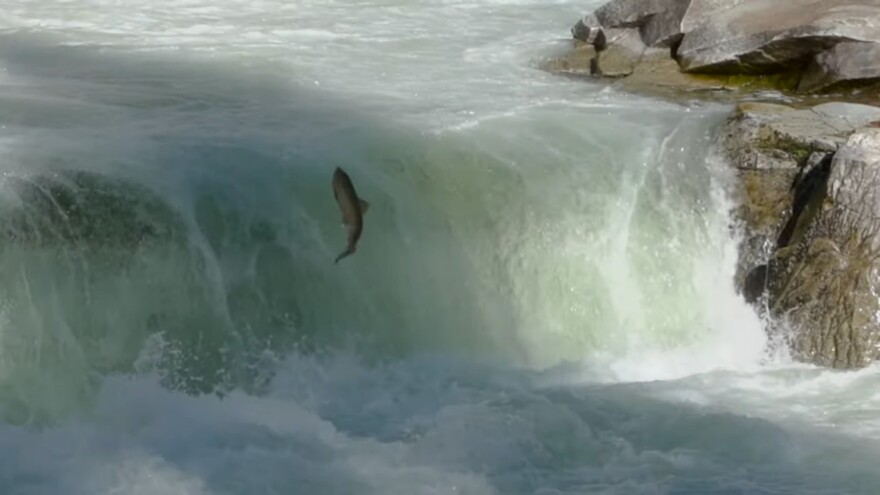Competing interests have weighed in this week on a wide-ranging plan to restore salmon by removing the four dams on the Lower Snake River.
Eleven tribal leaders are calling the possibility of salmon going extinct a “moral failure of the highest order.” They say declining salmon runs have decimated their way of life. Leaders pushed to protect the fish in treaties with the federal government.
Now, salmon are on the brink.
Tribal leaders, including members from the Confederated Tribes of the Umatilla Indian Reservation, Lummi Nation and Yakama Nation, say promises made by the U.S. must be kept -- and something must be done now to save the region’s iconic fish.
That could include Idaho congressman Mike Simpson’s sweeping $33.5 billion dollar concept to remove the four Lower Snake River dams. Infrastructure investments would replace what would be lost: everything from finding new ways to ship grains to helping with irrigation to replacing lost energy.
Despite early praise, a coalition of environmental groups recently called Simpson’s dam removal plan a “non-starter.” That’s because it would suspend several bedrock environmental lawsuits for decades. The groups say lawsuits are why wild salmon on the Snake are still around today.
Also responding to Simpson's proposal are about 50 groups with an economic interest in the Columbia and Snake Rivers say they agree that restoring salmon runs is a worthy goal. But breaching the dams, they say, will cause major economic harm, while not assuring that salmon populations will rebound.
In a recent public letter to Simpson, the region’s governors and Congressional members, they say there are other problems with the proposal. It wasn’t vetted publicly before being released. It would lead to a loss of clean electric energy and, therefore, higher power bills. It would require goods that are now barged on the river to be trucked out of the region or sent via railroad car. They say that would lead to an increase in greenhouse gas emissions.
On the day that letter was made public, Simpson also issued a public letter, defending his proposal as a proactive way to avoid court intervention that could impose far more drastic measures. He said the Idaho convinced the federal government to allow the Gem State to craft its own plans to increase populations of wolves and sage grouse. He says that is possible here too, but, quote, “I cannot do it without help and guidance from producers and ranchers.”

